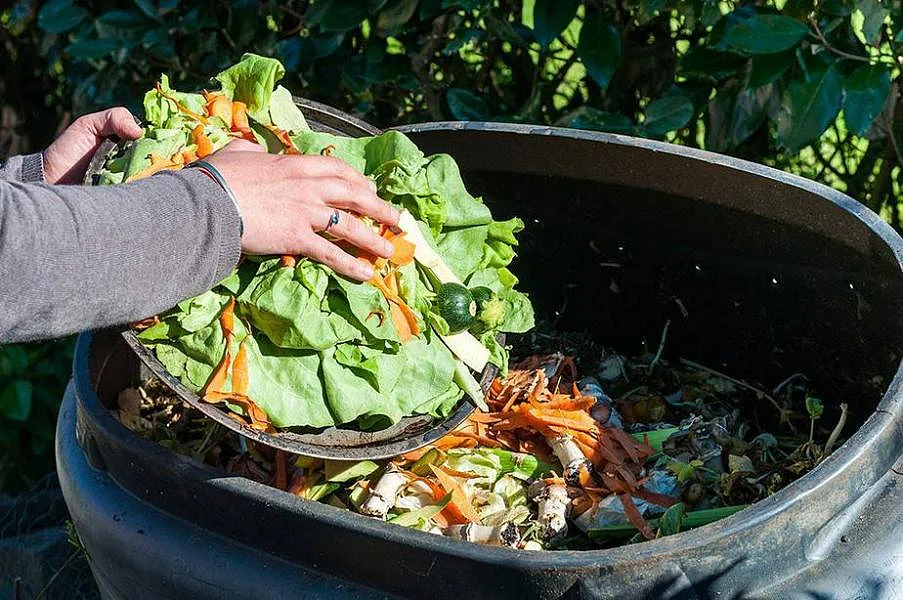ADAFSA urges public and businesses to reduce food waste to ensure food security
The overall cost of food wasted each year is estimated at $1 trillion

The Abu Dhabi Agriculture and Food Safety Authority (ADAFSA) has urged the public and all stakeholders across the food supply chain to avoid practices and behaviors that contribute to food loss and waste throughout the journey from farm to table. The Authority noted that the highest levels of waste occur between the harvesting stage and retail.
It also called on consumers to refrain from negative dietary habits by preparing food in reasonable quantities, purchasing only what is needed, ensuring proper storage and safe shopping practices, and adopting other positive behaviors that preserve food and reduce waste.
During a remote awareness session that targeted all community groups as well as food producers and retailers, the Authority emphasized that “food waste” refers to edible food that is lost, discarded, or spoiled despite being suitable for human consumption in most cases.
Food waste costs the world $1 trillion annually
Citing global statistics, ADAFSA highlighted that nearly one billion people suffer from hunger worldwide, while the cost of disposing of food waste amounts to around $410 billion annually. The overall cost of food wasted each year is estimated at $1 trillion.
The Authority explained that reducing current global food waste by just one quarter would be enough to feed around 870 million hungry people. It added that food waste also represents a major loss of resources such as water, farmland, energy, labor, and capital.
Three ways to reduce food waste
The Authority identified three main negative impacts of food waste: contributing to global warming—since rotting food releases methane gas—environmental damage, and financial loss. To address these, it recommended three steps: preparing for shopping, mindful shopping, and proper storage. Consumers should plan their needs and purchase quantities according to family size and real consumption, avoiding unnecessary excess.
The Authority also urged the public to adopt practical measures to reduce waste, including supporting local products, planning weekly meals, and paying attention to food expiration dates, particularly for perishable or canned items.
Further recommendations included preparing meals in suitable portions, avoiding overfilling plates, storing leftovers for reuse, and keeping food under proper storage conditions. For households, ADAFSA advised simple storage rules such as maintaining a room temperature of around 20°C away from direct sunlight, storage humidity below 15%, keeping food off walls on shelves, applying the “first-expire, first-out” method, and ensuring cleanliness to prevent pests. Refrigerators should be kept below 5°C, freezers between -15°C and -18°C, and should not be overfilled to allow air circulation. Frozen foods should be thawed properly.
Three practical steps to cut food waste
The Authority also outlined three practical steps: avoid shopping when hungry, donate surplus food to the needy through initiatives such as the Red Crescent or other food preservation programs, and use leftovers to feed animals, birds, or as compost.
ADAFSA reaffirmed its central role in ensuring sustainable food production, reducing waste and loss, and strengthening food security by improving supply chain efficiency. This is achieved through training programs for workers in the agricultural and food sectors, as well as awareness campaigns to encourage consumers to adopt responsible purchasing and consumption practices.
Legislation and guidelines
ADAFSA has issued a package of legislations related to food safety across the supply chain, along with simplified explanatory guides for food establishments. It has also released guidelines for good agricultural practices aimed at reducing loss during harvesting and transportation. These regulations follow a risk analysis approach, ensuring food safety based on scientific evidence and helping limit loss and waste.
In addition, the Authority has published the Food Waste Reduction Guide – Food Services Sector, prepared in line with best practices and aligned with government directions and ADAFSA’s strategic plan as part of the national food security system. To limit consumer-level waste, ADAFSA continues to organize awareness campaigns educating households on proper food storage practices and the importance of buying only according to need to minimize food waste.
Sign up for the Daily Briefing
Get the latest news and updates straight to your inbox
Network Links
GN StoreDownload our app
© Al Nisr Publishing LLC 2026. All rights reserved.
